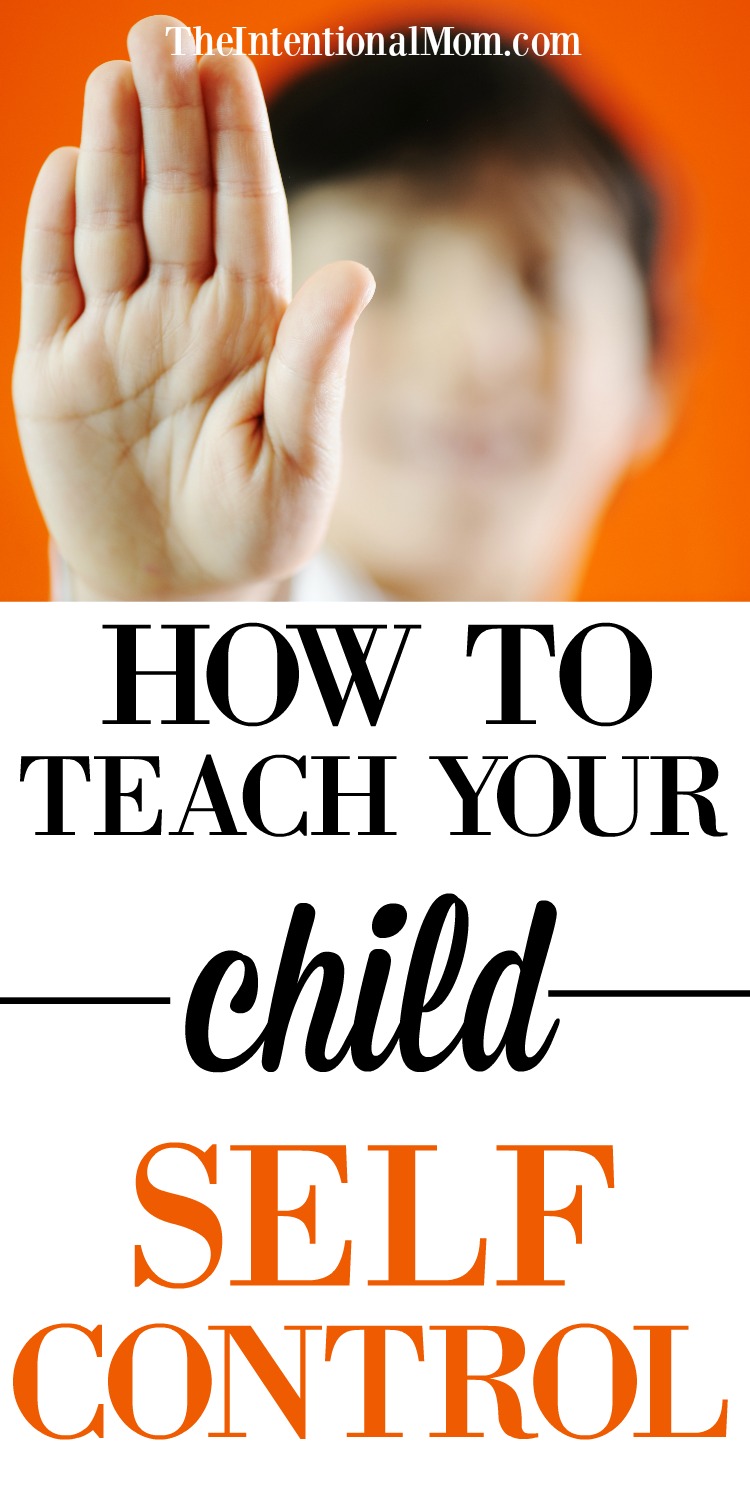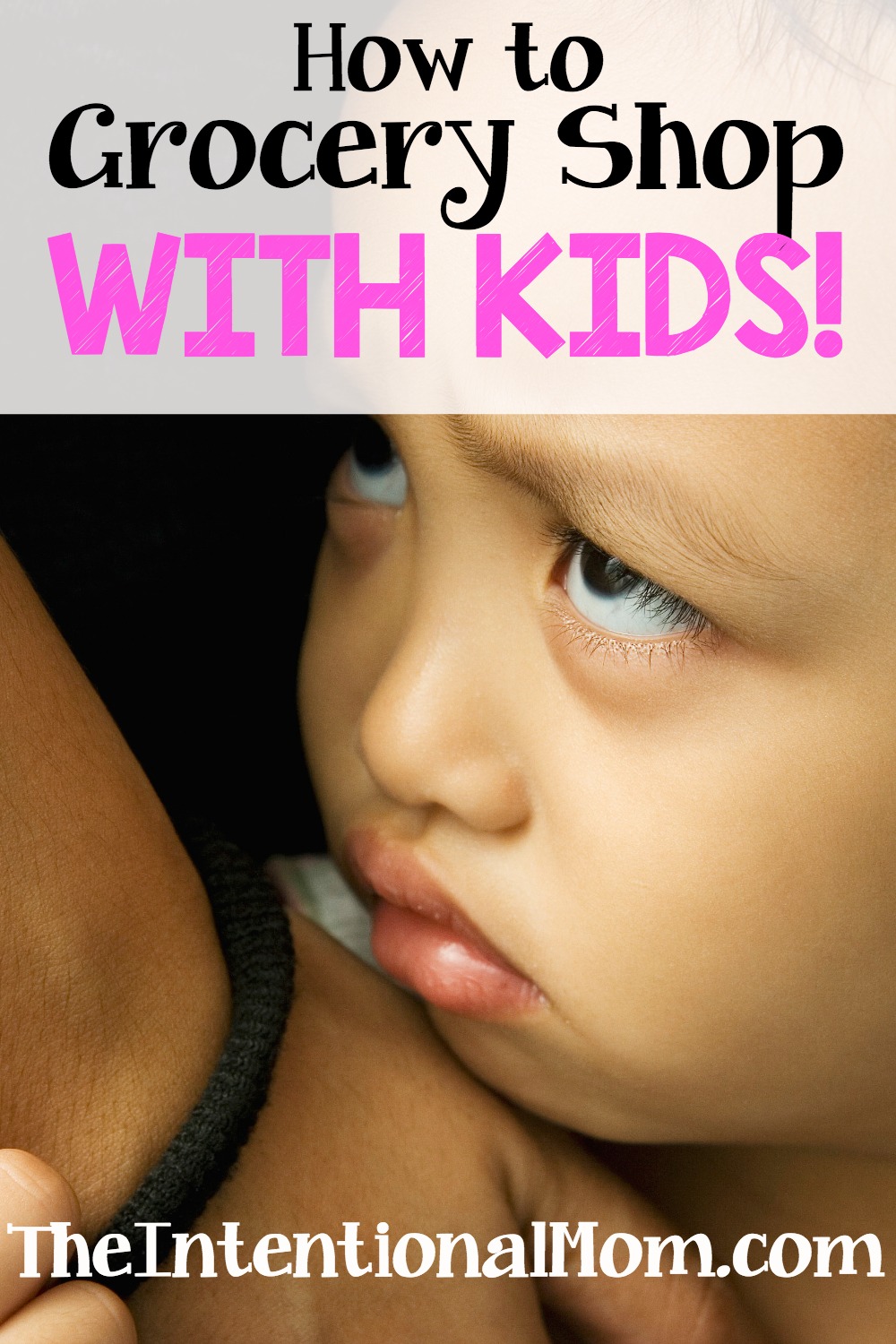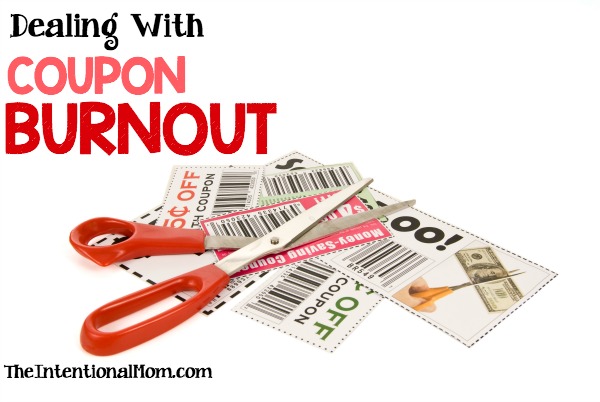How to Teach Your Child Self Control
The Intentional Mom Planning System is where you need to start with our incredible collection of product options. It will help you establish the basics for your life & home so you’ll finally have a plan, save yourself time, and go to bed feeling like you accomplished something every day (because you did). Save up to 60% HERE!
Self control is a necessary skill we all must possess, but do you know how to teach your child to exercise self control? Self control is not only important to the people around our children (like us), but it is also a vital component in your child developing a healthy sense of self-esteem. When people can’t behave with self control, they develop a poor self image, live their life frustrated with their own selves, and feel as though they have little to nothing to contribute.
Part of being human means that we don’t come by self control easily. In fact, at times it is a downright struggle to exercise self control, isn’t it? Staring at a pan of freshly made brownies that are still warm comes to mind, at least if you’re anything like me!
Self control can be difficult initially, but it does get easier to learn over time. Like so many things we do, behaving with self control becomes more like a reflex action and similar to the way lifting weights builds muscle mass when you’ve been training in the skill.
So then, how can we teach our kids self control?
(this post may contain affiliate links. If you make a purchase, I may receive a small commission at no cost to you)
The most important discipline in our child exercising their self control muscles is in avoiding an immediate reaction
Whether they are making a rash decision, reacting to someone who hurt them, or making a commitment without thinking it through, they act with self control when they pause before responding or reacting. This can best be taught to our child by doing this ourselves. I often tell my kids, “I will have to think about that.” Or, I tell them I will get back with them about something. It is so easy to hurt others, get ourselves in trouble, or make a careless mistake when we respond without taking the time to think through things.
In almost all cases, all people would do themselves a favor to pause before responding or reacting in any way. It is in the heat of the moment that we often say or do things we later regret.
Modeling this for your kids is a very good thing.
Similar to avoiding an immediate reaction is practicing delayed gratification
I don’t think this has ever been a more difficult concept to teach our children than it is today. Why? We live in a society of “I want this, and I want it now” in everything. This includes the food we eat, the way we communicate, and even in streaming the latest movie we want to see.
However, it is still a vitally important skill to teach our children. This can also be modeled rather easily by avoiding impulse buys. We almost always exercise this skill (and our kids are well aware of it) in an effort to maintain a frugal lifestyle in our home. But there really is a good life skill in it as well.
Not giving into those immediate wants is good for you and your kids to learn. It is relatively easy to learn…just don’t give in. That’s not to say that it’s easy to do. Denying ourselves isn’t necessarily a fun thing to do.
The inverse would also be true. If your kids only see you getting everything you desire without giving it much forethought, it will be more difficult for you to expect your kids to practice delayed gratification.
Help your child develop good habits
This includes minor things like washing their hands after a meal and brushing teeth in the morning and at night. This also includes larger things like taking the time for devotions, letting others go first, and maintaining a healthy lifestyle. Again, modeling good habits is always the best teacher.
In essence, this means practicing a lifestyle that is rooted in moderation, thoughtfulness toward others, and proper self care as it pertains to your physical, emotional, and spiritual health.
Require responsibility
In our house this includes chores, making their own lunch, and having to pay for some of their own “wants.” When your child makes a poor decision, there needs to be a consequence that follows. This requires your child to take responsibility for their own behavior and choices.
Remember when I talked of how my daughter had to pay half of her expensive flute repair bill since she was irresponsible and disobedient with it? This experience alone taught her so many valuable lessons including to exercise self control.
At its core here is your child being held accountable for the decisions they make. There is always room for grace, but it is not expected. This is one of the concepts we cover in our 25 house rules.
Allow nature to take its course
Sometimes the best way for your child to learn self control is to feel the consequences of life when they don’t. There are so many times in life when the best teacher is simply real life. Whether your child is a toddler or an older teen, this can be so good. Sometimes we just stand back and watch them do something that we know will not end well because it is how they will learn best.
Don’t forget to take the most vital step in the process and discuss how behaving with self control would have brought about a different outcome in the situation. It is easy to think that our kids just naturally know how to connect all the dots that seem obvious to us, but oftentimes they don’t.
When a bad decision and bad consequences arise, there is almost always a great teachable moment that follows. This is especially true when they are consequences that were delivered by reality rather than by you. Don’t miss these teachable moments.
Enforce discipline
When reality just won’t do, you may need to give your child some good old fashioned discipline. Just as in the previous step, be sure to talk about how a different choice would have brought about a different outcome.
I share some of how we take on discipline in Dealing With Disobedience Part One, Dealing With Disobedience Part Two, How to Deal With Sibling Squabbles, and 8 Creative and Fun Ways to Deal With Sibling Conflict.
An adult who can exercise self control is an adult who will have a much easier time in life. No good comes from someone who can’t control their mouth or their actions. A lack of self control will hold your child back in their work, damage their relationships, and limit the friendships they could have.
Teaching your child how to exercise self control while they are young will be something that will serve them well…and their future spouse will thank you, too!






I agree with all these pointers. Especially the responsibility part and taking part in the family. We teach our kids how we are a family unit and we all help one another. My kids appreciate their belongings more, too, because when they break them, they have to help pay to replace it.
Being part of a family unit that all depend on one another is key, isn’t it?
Great tips! Thanks for the reminder about taking a pause before responding. I know practicing this will definitely help my boys to do the same. I also like the tip about helping children develop good habits. We’re currently working on this. I struggle with helping my boys see the value in self-care.
The pause is so important…both for kids and for moms!
Awesome post! Everything you mentioned is so on point. Thanks for sharing such wonderful wisdom.
you’re welcome 🙂 I’m glad you enjoyed it. It’s so tough to do these things sometimes, but they make such a difference.
I love these tips! Thank you for them. One of my kiddos is very emotionally reactive, so we have been working on calming techniques (breathing, counting, pausing) as well as using his words to state how he’s feeling rather than lashing out in an emotional reaction. I regularly tell my kids that “I’ll have to think about that” in terms of allowing them to do something or in deciding some consequences. I haven’t thought of doing that in terms of reacting to something happening for me as a model for him. Thanks for the food for thought!
you’re welcome! I’m glad you found these tips helpful. It’s such a hard thing to teach, especially to those more emotionally reactive kids. Sounds like you’re doing a great job!